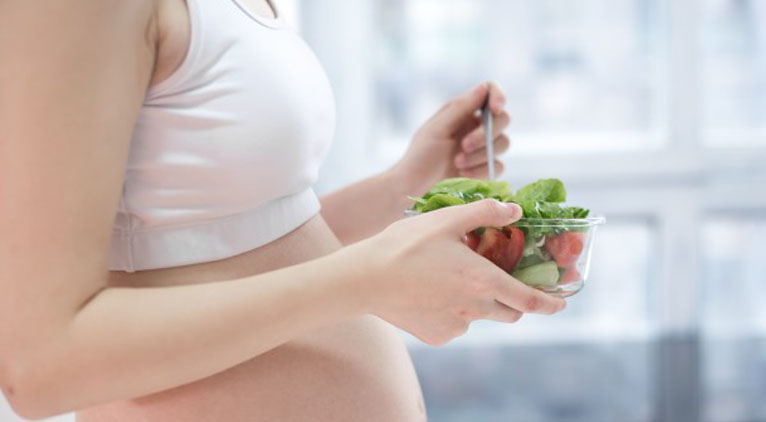11. Take Time to Relax
As your stress levels increase, your chances of getting pregnant decrease. This is likely due to the hormonal changes that occur when you feel stressed.
Having a stressful job and working long hours can also increase the time it takes you to become pregnant.
In fact, stress, anxiety and depression affect around 30% of women who attend fertility clinics.
Receiving support and counseling may reduce anxiety and depression levels, therefore increasing your chances of becoming pregnant.
12. Cut the Caffeine
Caffeine can negatively affect female fertility.
One study suggests that women who consume over 500 mg of caffeine daily take up to 9.5 months longer to get pregnant.
A high caffeine intake before pregnancy is also linked to an increased risk of miscarriage.
However, other studies did not find a strong link between caffeine intake and an increased risk of infertility.
13. Achieve a Healthy Weight
Weight is one of the most influential factors when it comes to fertility. In fact, being either underweight or overweight is associated with increased infertility.
A large observational study suggests that in the US, 12% of ovulatory infertility is due to being underweight, while 25% is due to being overweight.
This is because the amount of fat stored in your body influences menstrual function.
Women who are under- or overweight have longer cycle lengths, making it more difficult to get pregnant.
To improve your chances of getting pregnant, try to lose weight if you're overweight and gain weight if you're underweight.
14. Increase Your Iron Intake
Consuming iron supplements and non-heme iron, which comes from plant-based foods, may decrease the risk of ovulatory infertility.
An observational study including 438 women found that taking iron supplements was linked to a 40% lower risk of ovulatory infertility.
Non-heme iron was also associated with a decreased risk of infertility. Heme iron, which comes from animal sources, did not appear to affect fertility levels.
Nonetheless, more evidence is needed to confirm whether iron supplements should be recommended to all women, especially if iron levels are healthy to begin with.
However, boosting your intake of iron-rich foods may help.
Yet non-heme iron sources are more difficult for your body to absorb, so try taking them with foods or drinks high in vitamin C to increase absorption.
15. Avoid Excess Alcohol
Alcohol consumption can negatively affect fertility. However, it's unclear how much alcohol is needed to cause this effect.
A large observational study found that drinking more than 8 drinks per week was associated with a longer time to get pregnant.
Another study involving 7,393 women found that a high alcohol intake was associated with more infertility examinations.
However, the evidence on moderate alcohol consumption is mixed. One study found no link between moderate consumption and infertility, while other studies report that moderate intake can affect fertility.
For example, one study of 430 couples reported that drinking five or less alcoholic drinks per week was associated with reduced fertility.
16. Avoid Unfermented Soy Products
Some sources suggest that the phytoestrogens found in soy can interfere with hormone levels and cause fertility issues.
Several animal studies have linked soy with lower sperm quality in male rats and reduced fertility in female rats.
One animal study found that even small amounts of soy products caused sexual behavior changes in male offspring.
However, few studies have looked into the effects of soy on humans, and more evidence is needed.
Additionally, these negative effects are usually only associated with unfermented soy. Fermented soy is generally considered safe to eat.
17. Natural Supplements
Certain natural supplements have been linked to increased fertility. These include:
Maca: Maca comes from a plant grown in central Peru. Some animal studies found it improved fertility, but results from human studies are mixed. Some report improvements to sperm quality, while others find no effect.
Bee pollen: Bee pollen has been linked to improved immunity, fertility and overall nutrition. One animal study found that consuming bee pollen was linked to improved sperm quality and male fertility.
Bee propolis: A study of women with endometriosis found that taking bee propolis twice a day resulted in a 40% greater chance of becoming pregnant after 9 months.
Royal jelly: Royal jelly, which is also made by bees, is packed with amino acids, lipids, sugars, vitamins, fatty acids, iron and calcium. Animal studies found it may improve reproductive health in rats.
Anything Else?
Good nutrition is vital for a healthy body and reproductive system.
In fact, studies have shown that eating a nutritious diet and making positive lifestyle changes can help boost fertility and prepare your body for pregnancy.
What's more, how you choose to live and eat today will influence sperm and egg quality 90 days from now.
If you're trying to get pregnant, it's important that you begin making healthy nutrition and lifestyle choices today.
About Dr Bedekar Fertility Solution and IVF Clinic Thane:
Dr Bedekar Fertility Solution and IVF Clinic Thane is One of Best IVF Clinic & Fertility Center in Thane, Mumbai.
We Provide Treatment for IVF, ICSI, (IUI), Egg Donation, Semen Analysis, TESE / PESA etc.
Do get in touch to book appointment with our Experienced team of doctors. Talk to us on 022- 25423260 or Whatsapp us on +91 9820382434 or email us at mahesh_bedekar@yahoo.com
Happy to help!
Also read: Is your lifestyle hurting your fertility?
Back to All Articles


